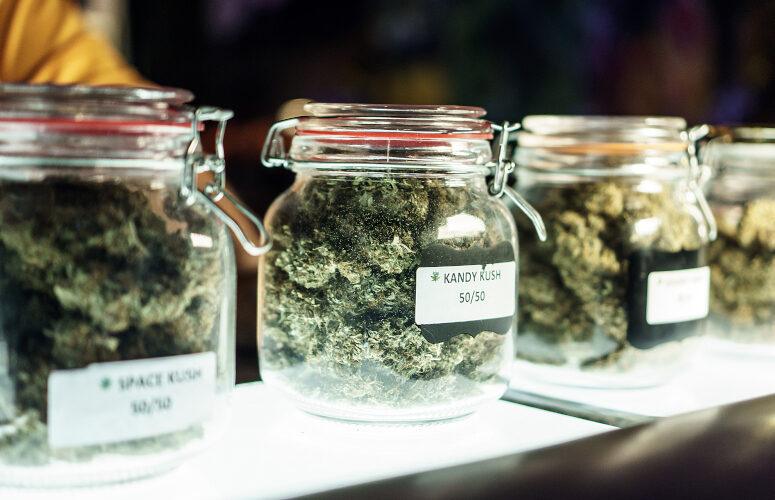
Poll: High Marks Given to NJ’s Legal Weed Dispensaries
On Apr 25, 2023About one-third of New Jersey adults have used marijuana or other cannabis products since recreational weed was legalized in the state a year ago, with most users happy to patronize a legal weed dispensary, according to a Stockton University Poll released today.
The poll of 660 adult New Jersey residents also found nearly the same percentage (29%) visited a brewery in the past year and that there is strong opposition to the state’s ban on breweries selling food and to other limitations on the businesses.
Regarding legal marijuana, 47% of cannabis users consumed it for recreational purposes and 39% did so for both recreational and medical purposes. Only 13% used it strictly for medicinal purposes, according to the poll conducted by the William J. Hughes Center for Public Policy at Stockton University.
A majority (69%) of users bought products from a licensed cannabis dispensary, with 86% being satisfied or very satisfied with the experience. The main reasons for satisfaction: 43% appreciated knowing the products were safe, and 23% liked the quality. Only 7% approved of the price of legal weed in New Jersey, which has among the most expensive cannabis in the country.
Among the 30% who bought marijuana from nonlicensed dealers, 18% said they did so because prices or taxes charged at dispensaries were too high. The main reason cited for buying marijuana on the street was that no legal dispensary operated nearby.
Levels of support for or opposition to dispensaries operating in respondents’ towns changed little in the year since legalization. A slim majority of 53% supported dispensaries selling recreational weed where they live, down slightly from 56% in an April 2022 Stockton Poll asking the same question. Thirty-nine percent opposed local dispensaries in the latest poll, up from 36% a year ago.
Views about whether the state’s hospitality industries should embrace cannabis tourism remained statistically unchanged from a year ago, with nearly half (48%) in favor of offering cannabis attractions like consumption lounges or other experiences in popular tourist towns, while 45% were opposed. A higher rate (50%) of respondents in South Jersey, where tourism is a top employer, were opposed.
Nearly two-thirds (65%) supported requiring cannabis lounges to be connected to and run by licensed dispensaries, while 23% opposed that regulation. However, 54% opposed the state ban on cannabis lounges selling food. Residents were evenly split on whether patrons of such lounges should be able to also use alcohol or tobacco; 45% supported the current ban and 44% opposed it.
Alyssa Maurice, research associate for the Hughes Center, said the poll provided some demographic characteristics of the state’s cannabis users.
- Men were more likely than women to have consumed weed, as 37% of men did compared to 28% of women.
- People under 50 were more likely to have used cannabis in the past year, including 43% of 18- to 29-year-olds and 41% in the 30-49 age bracket. Only 17% of senior citizens said they consumed cannabis, with half buying it strictly for medical use.
- Among various races and ethnicities, Blacks and African Americans had the highest usage (39%) followed by whites (33%), and Hispanics/Latinos (29%).
- There were no differences in usage between different regions of the state and those with or without a college degree.
- Democrats (38%) were more likely to consume cannabis than Republicans
(24%) or independents (32%).
Breweries in New Jersey
The Stockton Poll also asked about New Jersey breweries, which make and sell beer. Only 29% had visited a brewery in the past year, and 71% had not.
State regulations limit breweries to holding only 25 “special events,” which include showing a sports game on TV, per year, and prohibit the sale of food in the establishments. Only 26% supported such restrictions, while 61% opposed them and 13% were unsure.
The restaurant and tavern industry opposes food sales in breweries. However, a large majority of 78% of New Jersey adults said they supported allowing breweries to sell food, while 16% opposed the idea and 6% were unsure.
“These numbers represent a conflict between state regulators trying to level the playing field and consumers demanding that the market provide what they want,” said John Froonjian, director of the Hughes Center.
Find full poll results here.
Methodology
The poll of New Jersey adult residents was conducted by the Stockton Polling Institute of the William J. Hughes Center for Public Policy from April 1-14, 2023. Stockton University students texted cell phones with invitations to take the survey online and Opinion Services supplemented the dialing portion of the fieldwork, which consisted of cell and landline telephone calls. Overall, 86% of interviews were conducted on cell phones and 14% on landline phones. In terms of mode, 83% were reached via dialing and 17% were reached via text-to-web. A total of 660 New Jersey adult residents were interviewed. Both cell and landline samples consisted of random digit dialing (RDD) sample from MSG. Data are weighted based on U.S. Census Bureau American Community Survey data for New Jersey on variables of age, race, ethnicity, education level, sex, and region. The poll’s margin of error is +/- 3.8 percentage points at a 95% confidence level. MOE is higher for subsets.
To access more business news, visit NJB News Now.
Related Articles:





